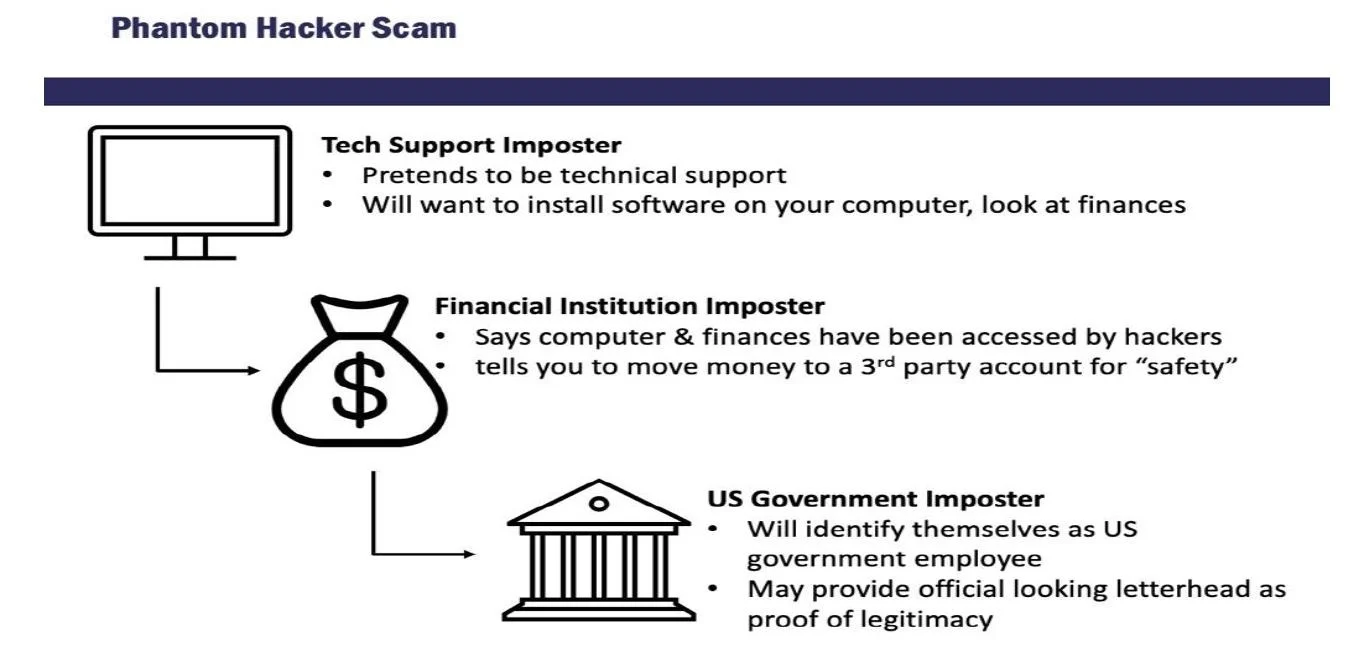Have you heard of the new “phantom hacker” scam? The Federal Bureau of Investigation (FBI) explains that imposter scammers are using this new digital tactic to significantly target senior citizens.
How it works
According to the FBI, the phantom hacker scam has three steps.
Step 1
A scammer posing as a customer support representative from a technology company contacts a victim via phone call, text, email, or popup window on their computer, explaining they are “at risk” of being hacked or have been hacked. The scammer asks the victim to download software to “resolve” the issue. The scammer then receives remote access to the computer and the victim’s financial accounts.
Step 2
A scammer posing as a bank representative contacts the victim, explaining the victim’s financial accounts have been accessed by a “foreign hacker.” The scammer then tells the victim they will need to move their funds to a “safe” third-party account with a government agency. The victim then relocates funds via a wire transfer, cash, or cryptocurrency, possibly over a series of transactions.
Step 3
A scammer posing as a representative from a U.S. Government agency may reach out if the victim becomes suspicious. The scammer then sends an official-looking letter or email to “legitimize” the scam.
Scam prevention
- To avoid falling victim to scams like this one, the FBI recommends:
- Not clicking on unsolicited popups, links, or attachments
- Not contacting telephone numbers provided in popups, texts, or email
- Not downloading software at the request of an unknown person reaching out to you
- Not allowing an unknown person reaching out to you to access your computer

Image courtesy of Federal Bureau of Investigation.
The U.S. government will never request payments via wire transfer, cryptocurrency, or gift cards. The FBI requests victims report these fraudulent or suspicious activities to the FBI Internet Crime Complaint Center (IC3) at www.ic3.gov.



